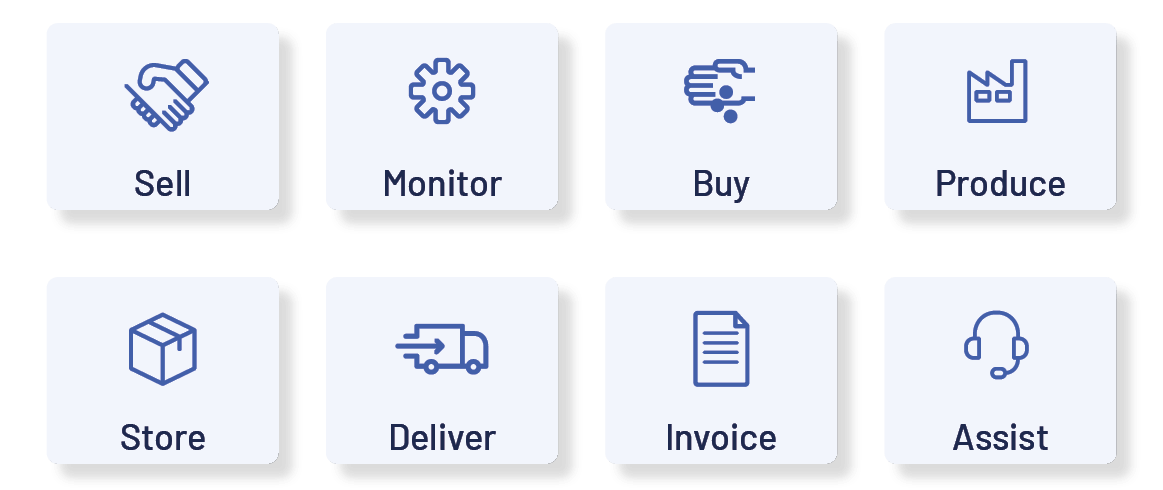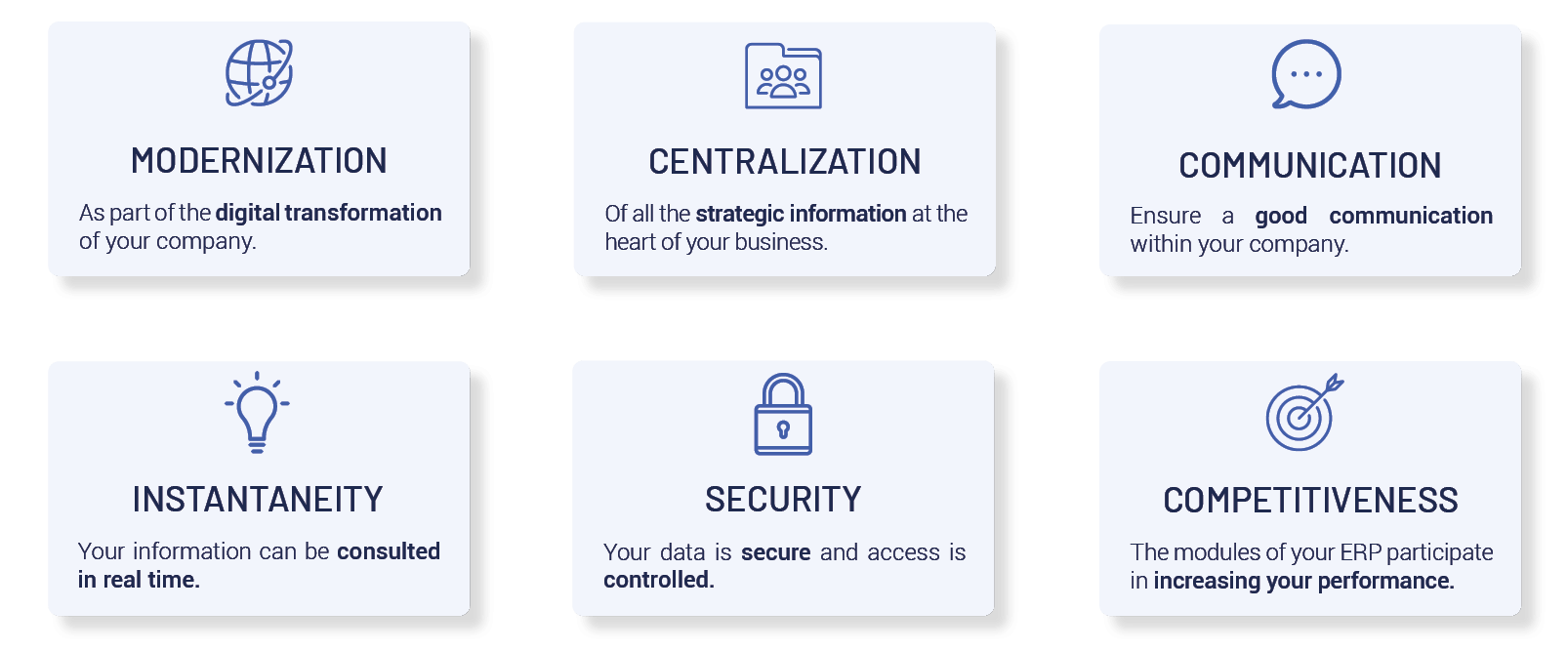What is an ERP ?
The term ERP stands for Enterprise Resource Planning. It is a key IT tool allowing you to ensure the monitoring of your company by optimizing the management of resources.
This type of software is suitable for all types of companies, regardless of their size : start-ups, SMEs, ETIs, large international groups, etc. An ERP also adapts to the particularities of your business : an SME operating in the field of metallurgy does not operate in the same way as another specialist in the world of healthcare. This is also what makes the strength and quality of an ERP : an answer 100% adapted to the needs of your company and your employees.
The ERP is thus at the heart of your structure by allowing you to centralize all the functionalities that make up your daily activity, all within the same database.
Does this seem complex to you ? The functionalities of an ERP system are very concrete and intervene at all stages of your daily activity : commercial management, production management, quality management, stock management, delivery, etc.
A good ERP must therefore cover all the activities of your company. It must interact with them in a fluid, transparent way, and adapt logically to your operations. It should not change the way you operate, but rather ensure the common thread that you have determined. Your ERP will help you to sell, manage, buy, produce, store, deliver, invoice or even assist your customers thanks to an after-sales service management.

What are the advantages of an ERP ?
Integrating an ERP within your company allows you to have many advantages for your competitiveness :
- You modernize in a global way the management of your company by having a unique software. You thus avoid the multiplication of unsuitable and time-consuming tools that can, for example, lead to duplicate recordings.
- You centralize information from all your internal departments (production, accounting, quality, after-sales service, etc.) and save time and efficiency. You can link all the information together and decide to whom you want to make it visible.
- You ensure a good communication between your different departments, thanks to task management, reporting and messaging tools. You trace and keep a complete history of each person’s actions.
- Your database is updated in real time : as soon as new information is entered, you can be sure that every employee authorized to consult it has access to it. Everyone can thus be sure to be reactive in order to secure all processes.
- No more data loss ! Your information system is centralized, secure and, above all, efficient.

How can I be sure to choose a high-performance ERP ?
Are you looking for an ERP and want to be sure to choose the best solution ?
The consulting firm CXP, now teknowlogy Group, gives the following criteria about what an ERP should be :
- The ERP must come from a single designer.
- It must guarantee to the user the uniqueness of information provided by the availability of the entire database structure from each of the modules, even taken individually.
- It must be based on a real-time update of the modified information in all affected modules.
- It must provide audit trails based on the guarantee of total traceability of management operations.
- It must cover either a management function (or sector) or the entire information system of the company.
In addition, an efficient ERP must also have the particularity of operating in a modular way : the functionalities are thus grouped in modules that you are free to choose in order to build, in partnership with the editor/integrator, the solution adapted to your needs.
In order to be sure to make the right choice, it is also important to draw up precise and exhaustive specifications. You can do this with the help of a consultant, or contact directly the ERP publisher of your choice so that their pre-sales teams can better understand your way of working and the functionalities that are important to you.
Make sure you have business experts who will understand your needs and give you the benefit of their experience to guide you in the best possible way.
How much does an ERP cost ?
The cost of an ERP is extremely variable depending on the size of your project. It is thus necessary to take into account :
- The overall complexity of the project.
- The number of licenses required.
- The desired modules.
- The urgency of the project.
- The hosting mode (local, SaaS, cloud, etc).
Making the right choice about your ERP allows you to ensure a rapid return on investment : it is therefore essential that your specifications integrate these different elements so that the costing of your project is as accurate as possible, and that the functionalities developed correspond to your expect
The ERP : in the end
In the end, ERP has become an essential tool for the digital transformation of companies. Information is an element that must be mastered in order to put data at the service of your competitiveness. The deployment of an ERP thus appears as a decisive step in the growth of any company.
You want to implement an ERP in your company ?
We are editor and integrator of our own solution : Synoptic ERP. This means that our ERP has been designed by our own engineers, and that we have all the necessary knowledge for an efficient integration within your company. Our business experts accompany you throughout your project and ensure the proper transmission of your needs to our development teams.